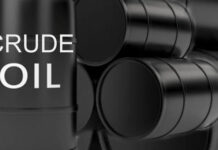How global market influences fuel price
CHIGOZIE AMADI
The price of Premium Motor Spirit (PMS) popularly known as petrol has been a subject of discussion continuously in Nigeria. Citizens of the oil producing country have high expectations on fuel price.
Realistically, experts have revealed that fuel prices are majorly determined by the global market. It is a misconception that local refining would lead to cheaper fuel.
On the contrary, indigenous refineries will help boost the nation’s economy, stabilise forex and make local currency gain strength which will adversely reduce inflation and bring down cost of goods and services which citizens are clamouring for. It will also expand downstream infrastructure and create thousands of jobs.
In his submission, an oil magnate, Robert Dickerman, who is the CEO of Pinnacle Oil and Gas Limited, explained that the root cause of fuel hike in Nigeria is the devaluation of naira in the global market.
He stressed that Dangote’s oil production will not massively lower the price of fuel, explaining that all crude oil and petroleum products are priced in United States Dollar (USD), all over the world since oil was first drilled in Pennsylvania in 1859.
Dickerman said, “we import products, whether the buyer is NTL or a private marketer, we must pay the global market price, adjusted for quality and location. That price is in dollars and must be paid in dollars. When it is re-sold in Naira by vessel, in bulk in a terminal, by truck at a gantry, or by pump at retail, the market price is the USD price, converted to Naira at the current FX exchange rate, which is currently about N1700.
“Any price below that is the result of Nigerian subsidy. The subsidy represents the difference between the market price and the selling price.”
He maintained that every drop in the naira raises the cost of anything imported or market priced, whether gasoline, manufactured goods or food.
More analysts have corroborated this stance and enlightened the citizenry on the situation for the right perception and focus.
An oil expert, Henry Adigun has also said $20bn Dangote Refinery in Lagos might not sell a litre of petrol below the new pump price at the retail outlets of the Nigerian National Petroleum Company Limited (NNPCL) due to production costs transacted in dollars. He said the petrol type produced at the Dangote Refinery is the best in the world, and the better the quality, the more the pricing.
The business as a dollar-denominated one is influenced by the strength of the nation’s currency.
Following the reforms in the Petroleum Industry Act (PIA), the Nigerian National Petroleum Company Limited, NNPCL is no longer a regulator of fuel prices. The crude business is now a fully deregulated market. This will drive competition, innovation, and boost investment in downstream infrastructure.
The NNPCL aims to make profit, so it will not sell below cost price. The price of petrol, whether from NNPCL or any independent marketer, is decided by market forces, as well as the cost of products they receive from local refineries or global suppliers. A hint on the price of petroleum products sold to NNPCL recently by a private local refinery in Nigeria is N998 per litre.
Independent retail stations and NNPCL can freely buy fuel from wherever it is available and more affordable. Their activities are, however, regulated by Nigerian Midstream and Downstream Petroleum Regulatory Authority (NMDPRA), Nigerian Upstream Petroleum Regulatory Commission (NUPRC).
As regards the fuel price, eyes and fingers are still on the removal of fuel subsidy in 2023. The current administration has appealed to Nigerians to be more patient for the good fruits of the sacrifice to yield and circulate the nation.
The immediate past administration removed fuel subsidy and only budgeted for it till the end of May 2023. The National Assembly approved this plan for the 2023 budget, which the present administration continued with. The government was said to have taken critical action to stabilise the economy, ensure long-term energy security, and increase infrastructural development in other critical sectors like health, education and job creation.
Part of the reasons for its removal were the high cost of subsidy payment as it required billions of dollars, oil theft, and fuel smuggling. This will also reduce the government’s borrowing needs, stabilise the naira, and create a more competitive market for domestic refining. Removing it has allowed the market to operate freely and opened up opportunities for local refineries to thrive. Prices may initially rise, but global oil prices, exchange rates, and local refining costs influence them. If crude oil prices fall or refining becomes more efficient, pump prices will adjust accordingly.
Fuel prices are expected to stabilise as local production increases and competition between independent marketers rises. As investments increase in the local refining sector, Nigeria is expected to experience a reduction in fuel imports. This will drive long-term price stability and foster job creation in refining, logistics, and retail sectors.
While the nation awaits the yields of the action, the federal government has put in place initiatives to cushion the effects of the situation. It has increased the allocations of state government and directed the implementation of local government autonomy for more people at the grassroots to benefit from the programmes of the government, including distribution of food items and machineries.
In place of petrol, Nigerians have been urged to embrace the use of gas— Compressed Natural Gas (CNG) to fuel their vehicles for transportation and Liquefied Petroleum Gas (LPG) for cleaner cooking.
The CNG is a cheaper and cleaner alternative to petrol through the Presidential CNG Initiative. It is currently priced at N230 per litre, offering immediate relief to consumers. The government is also encouraging investment in infrastructure to support CNG adoption in the transport sector. Some commercial transporters have received free federal government CNG conversion kits through PCNGI.
For conversion of vehicles’ engines to enable the use of CNG, the government commenced a convert-now-pay-later scheme to help vehicle owners convert their cars easily. Citizens can now go to the nearest conversion centre in their respective states and switch to CNG for an impressive experience. It is safer, cheaper and CNG stations are being made available across the country in partnership with the private sector. However, experts and designated stations should be contacted for proper conversion.
Nigerians are charged to support the government at all levels for their goals to be actualised while exercising patience and be law abiding for the long term gains and huge economic growth. They should also hold the government accountable on how the money garnered from the subsidy removal are spent in order to ensure growth in the standard of living of the populace.

























